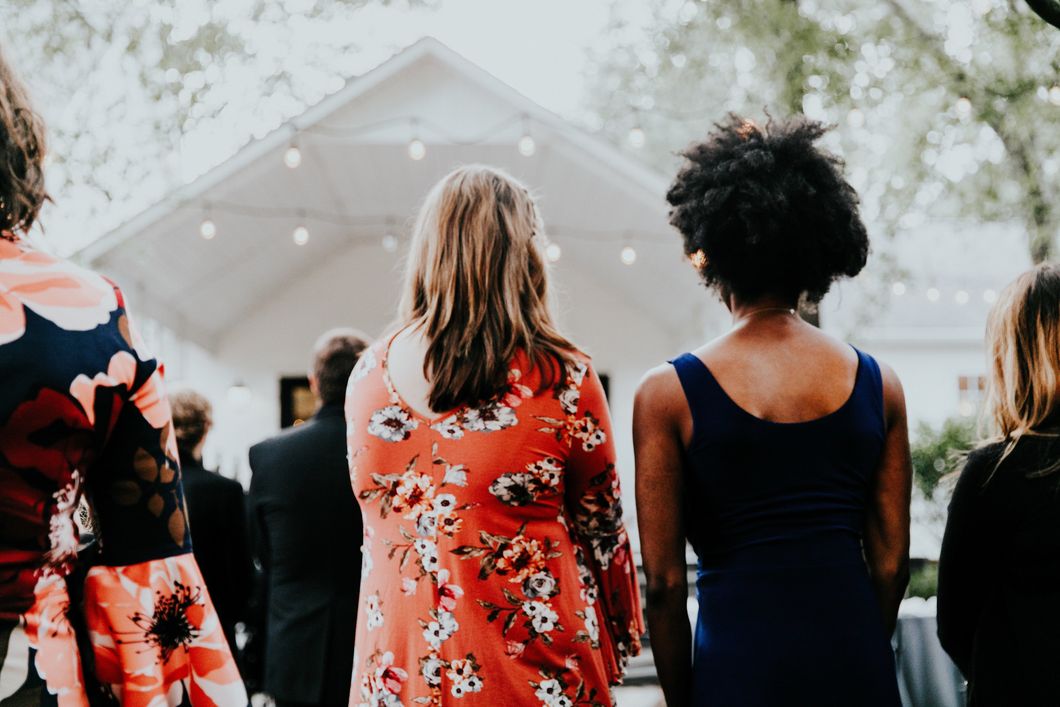"Intersectionality." Before I started college, I had never even heard this word before. As I started taking my social science courses, the term continued to pop up. Now that I know what intersectionality is, I feel that it has made a significant difference in the way I view the world around me, as well as the way I make decisions and form stances on issues that may affect myself and others.
So, what is intersectionality?
Intersectionality is a noun that describes the interconnected nature of social categorizations as they apply to a given individual or group. Some of these social categorizations are race, gender identity, sexual orientation, nationality, and ability. Intersectionality looks at these categorizations among others, attempts to describe overlapping or intersecting social identities, and connect them to related systems of privilege, domination, oppression, and discrimination.
In other terms, intersectionality acknowledges that we are the sum of our own identities we resonate with, and those identities can play a part in the unique experiences each of us will have in this world.
Alright well, how does intersectionality relate to me?
Each and every one of us has a variety of social identities that make us who we are. Some of these identities give us privilege. Others may oppress us in some way.
Using myself as an example, I resonate with being a white, middle class, Christian, heterosexual, and cis-gender woman as some of my defining social identities.
Because I am a white individual, I have a sense of privilege in comparison to people of color because I do not witness discrimination relating to the color of my skin. Not once have I felt that the color of my skin hindered my ability to be successful or to simply feel safe.
Because I am considered a part of the middle class, I may be less wealthy than members of the upper class, but I have never had to wonder where my next meal was coming from or where I would lay my head down at night.
Because I am a Christian, my religion is dominant in the U.S. I am fortunate enough to have the majority of my religious holidays off, and my religion does not get associated with terrorism like some of my Muslim friends encounter.
Because I am heterosexual, I do not get bullied for liking boys. Not once have I ever had someone come up to me and ask me why I am straight or tell me my "lifestyle choice" is going to send me to Hell.
Because I am cis-gender, I express my gender in a way that also coincides with my biological sex. I am privileged because I do not experience people misgendering me or treating me like I am mentally ill the way that my trans and gender-nonconforming friends may.
Because I am a female, I will most likely end up getting paid less in my future career than the men in my field even if I am equally qualified. Also, I will always have to be more cautious to make sure I don't put myself in harm's way by paying attention to how I dress, not being out too late, and always being aware of my surroundings, while males may not have to worry as much.
Collectively, all of these identities make me who I am. While some people will share some of the same social identities as me, people will also have ones that differ from mine, which has the potential to influence their outlook on life, as well as the way they choose to live their life.
Interesting, how can I integrate intersectionality into my viewpoints?
It is so easy to make generalizations when explaining your views, like saying "all women feel" a particular way or that "all people of color believe" some common understanding. While your intentions may be good, generalizations like this do not take into account other overlapping social identities. Because of this, the generalization you are making may not apply to "all women" or "all people of color" because the other identities they may possess are being overlooked.
To help with this, try to think about the fact that your experiences, while valid, are not everyone's experiences. Every single person is unique and will have different experiences than you. Try to educate yourself by listening to people who differ from you in a variety of aspects and hear about their struggles as well as their triumphs. This will help you think intersectionally because you will be educating yourself on experiences that differ from your own.
Thinking intersectionally is also important when taking stances on political issues. While some issues being addressed may not apply to you or affect you, one should still think about the identities that a particular issue will affect. Do your research, talk to people who will be affected by these issues, and develop a well-informed stance.
All in all, humans are diverse. We have a web of identities that make each and every one of us unique. While some of these identities we possess may oppress us, other identities uplift us. I feel that it is important for intersectionality to be integrated into our way of thinking so we can try our best to reflect on not just the well-being of ourselves, but on the well-being of all the wonderful individuals in this world as well.



















